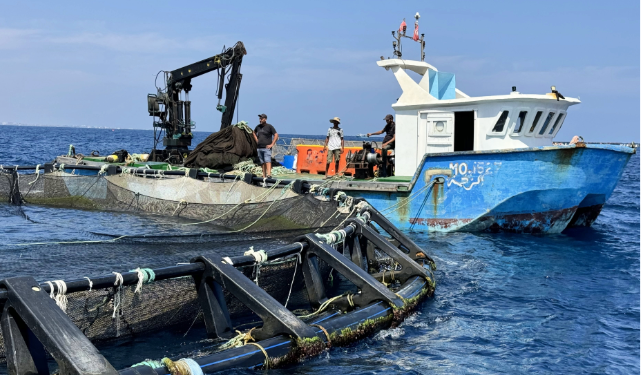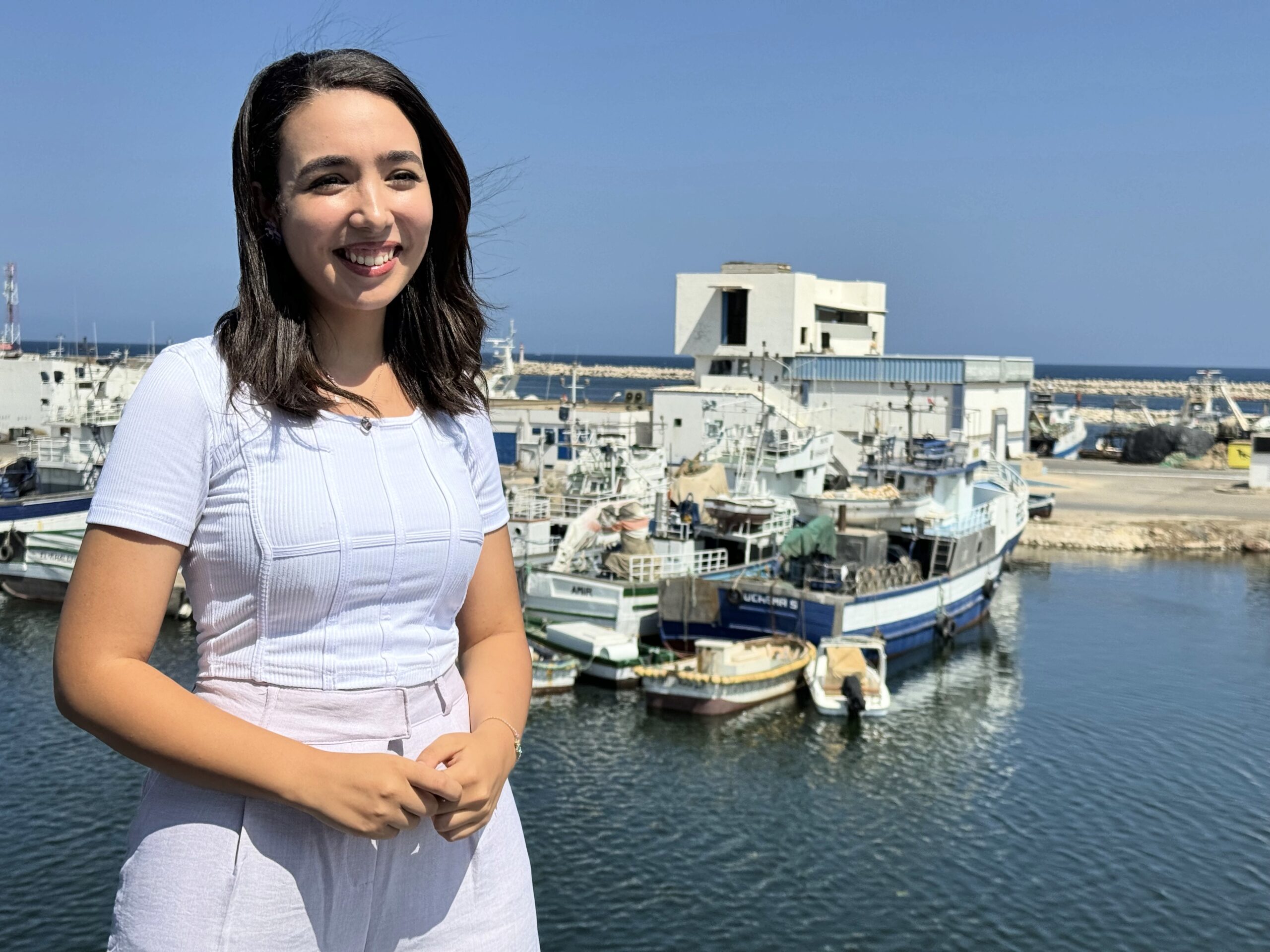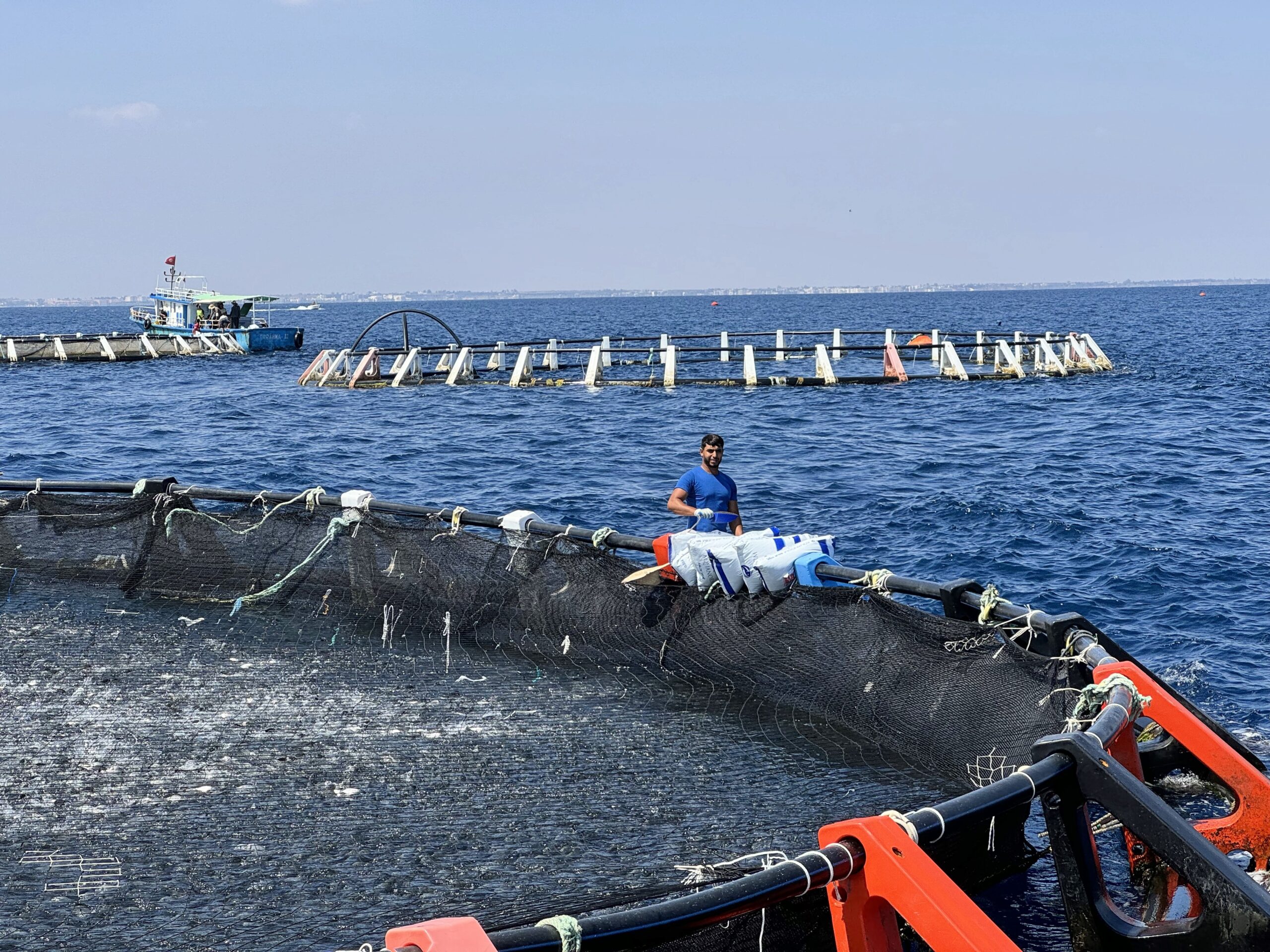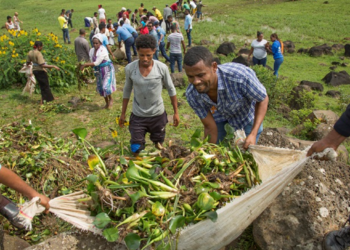ADAPT Program: Promoting sustainable transformation in agriculture, fisheries and aquaculture in Tunisia – The ADAPT Program (Support for sustainable development in the agriculture and artisanal fisheries sector in Tunisia) is a forward-looking initiative designed to drive economic, social, and environmental transformation in Tunisia. With a total budget of €70 million funded by the European Union and implemented by the Italian Agency for Development Cooperation (AICS) in partnership with the World Food Program (WFP) the program runs from 2020 to 2028. ADAPT promotes private investments as key levers for change, balancing food security, resource management, and rural development while aligning with the European Green Deal.
The program aligns with Tunisia’s national sustainability policies and strengthens private sector capacity to contribute to the ecological transition, making it an innovative response to environmental and economic challenges.
Interview with Oumaima Chebil, Technical Manager at Aquaculture Errahma
Here is a testimony from Oumaima Chebil, Technical Manager at Aquaculture Errahma, a pioneering aquaculture company founded in 2016. Specializing in gilthead seabream, European seabass, and meagre farming.
How did Aquaculture Errahma join ADAPT?
We learned about ADAPT when the program team invited us to a presentation day at the Teboulba port. The program’s vision of environmental conservation resonated with us as a new vision for the future of our company. Aiming for sustainable aquaculture, we prepared a project proposal and were fortunate to receive financial support from ADAPT.
A new challenge: Integrated multi-trophic aquaculture
The project integrates Mediterranean mussel and oyster farming into an existing fish farming system with floating cages where mussels and oysters are cultivated alongside fish. These filter-feeding organisms play a key role in water purification and contribute to transforming the aquaculture site into a natural ecosystem This innovative technique, known as Integrated Multi-Trophic Aquaculture (IMTA), enhances sustainability both environmentally and economically. IMTA aims to turn the challenges of aquaculture into advantages by reducing pollution from fish farming while increasing and diversifying production
“Mussels and oysters filter the water, keeping it clean and creating an environment where fish feel at home. This sustainable approach enhances environmental conservation while also having an economic impact. Mussels and oysters are marketable seafood products, which add to our company’s profitability.”
Sustainable aquaculture practices
Aquaculture is not just about fish farming, it is a delicate balance of dedication, care, and precision but also of science, environmental responsibility, and economic viability. Ensuring the health and productivity of farmed species requires continuous monitoring, adaptation, and responsible resource management. As Oumaima explains:
“You must closely monitor fish health, adapt feed sizes based on their growth, and clean the nets regularly. Our process begins with installing the cages and introducing small fish called ‘fingerlings.’ Then we monitor their development and ensure optimal conditions for their growth.”
A call to action
The ADAPT program offers a unique opportunity for private operators in Tunisia’s agriculture, fisheries, and aquaculture sectors. By supporting projects that align with environmental sustainability and economic viability, ADAPT empowers businesses to innovate while ensuring resource preservation for future generations. Oumaima encourages other operators to consider the ADAPT program:
All operators in Tunisia’s fisheries and aquaculture sectors are encouraged to participate in the ADAPT program. “If you have an idea that contributes to environmental preservation and meets ADAPT’s criteria, this program can provide you with the financial support needed to make your project a reality. Insha’Allah, you will be able to achieve your goals.”
The Broader impact of ADAPT
The ADAPT program showcases how partnerships between governments, private operators, and scientific research can transform local economies and environments. By supporting innovative projects like integrated multi-trophic aquaculture at Aquaculture Errahma, ADAPT sets an example for balancing economic growth with environmental sustainability.
For more information on the ADAPT program, visit www.adapt-tunisie.org.
Together, through sustainable aquaculture and ecological initiatives, we can build a better food production and more resilient future for Tunisia and also for other countries in the Mediterranean area and Africa.
ADAPT Program: Promoting sustainable transformation in agriculture, fisheries and aquaculture in Tunisia











